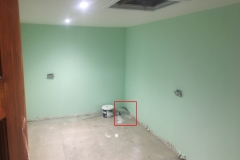
From surgery scandals to housing disasters to cultural boycotts — Optical Express, Shepherd Surveyors and Wickes all faced unstoppable public campaigns after customers claimed they weren’t being listened to.
There was a time when unhappy customers had little power. A time when complaints could be contained — written off, buried, or left to quietly expire in a customer service inbox.
That era is over. Permanently.
In today’s digital battlefield, the customer is the broadcaster — and companies that refuse to listen are discovering that silence is now the greatest threat to their survival.
Across industries, we are seeing the same pattern: when customers feel dismissed, ignored or talked down to, they no longer back down. They escalate. And they do it publicly.
Three major UK names — Optical Express, Shepherd Chartered Surveyors, and Wickes — now serve as proof. Each faced very different accusations. But all faced the same accusation at the core:
“You didn’t listen to us.”
The Laser Surgery Complaint That Became a Movement
A website titled Optical Express Ruined My Life still exists as one of the loudest consumer warning sites online.
Set up by a woman who says her laser eye surgery left her with life-altering complications, it documents dozens of similar cases — not just describing the harm, but specifically accusing the company of failing to meaningfully respond to patient concerns.
By its own claim, the site has cost Optical Express millions of pounds in lost trust and lost future business. Thousands of people now read her warning before ever booking their consultation.
It wasn’t just the alleged medical outcome that caused the reputational damage.
It was the belief that the company refused to listen.
A Property Survey That Turned Into a Permanent Online Warning
A family in another industry tells a similar story — this time about Shepherd Chartered Surveyors, now the subject of a bluntly named website: shepherdsucks.co.uk.
The homeowners allege the company failed to spot serious property defects during a Level II survey. Multiple experts later confirmed the problems were not new. But — just like the Optical Express case — what triggered the public backlash was the alleged response.
They didn’t feel heard. They didn’t feel respected.
So they did what customers increasingly do — they took it to the public.
And just like that, Shepherd now has a permanent online warning signal attached to its name.
Not Always About Service — Sometimes It’s About Values
A third example proves this revolt isn’t limited to clinical or professional failures. It can also ignite when a brand appears to abandon or ignore its own customer base.
BoycottWickes.co.uk, now no longer active, was one such campaign. It emerged in response to customer backlash against what critics claimed was a politically driven shift in messaging from the Wickes brand.
The site called for a nationwide boycott — not over poor service, but over the belief that the company wasn’t listening to its core customers.
Agree or disagree with the motive — the result is what matters.
If customers feel unheard — they will fight back.
The Single Most Dangerous Mistake a Company Can Make Today
The reputational damage in all three cases did not begin with the original issue.
It began when customers believed:
• They were being ignored
• The company would not take accountability
• Their concerns were being minimised or dismissed
That moment is when everything changes.
Because today, customers do not walk away silently.
They go public — and they take the crowd with them.
Final Warning to All Businesses
A complaint is no longer a single voice.
It is a potential public movement in waiting.
Optical Express. Shepherd Surveyors. Wickes.
Three very different stories — one identical lesson:
If you refuse to listen to your customers — the internet will make sure you hear them anyway.
And once that begins… you no longer control the narrative.